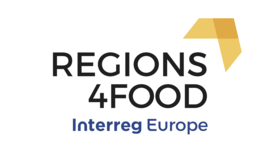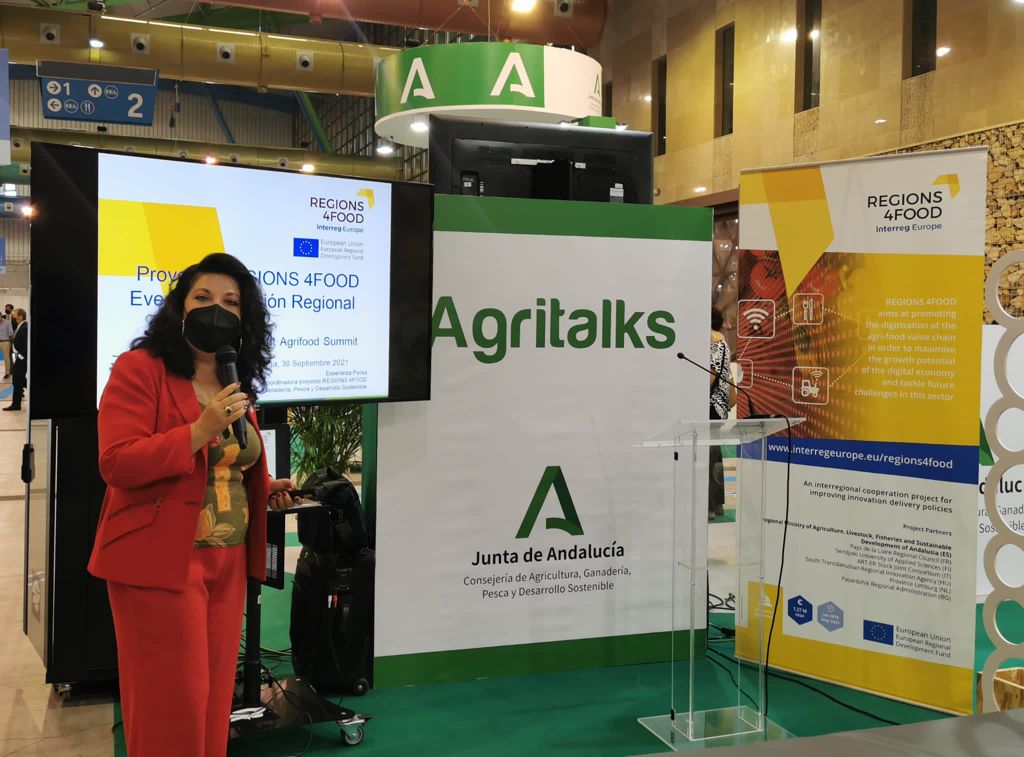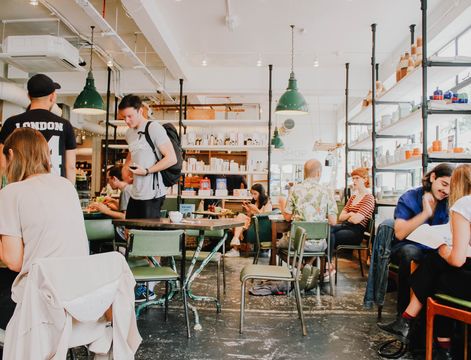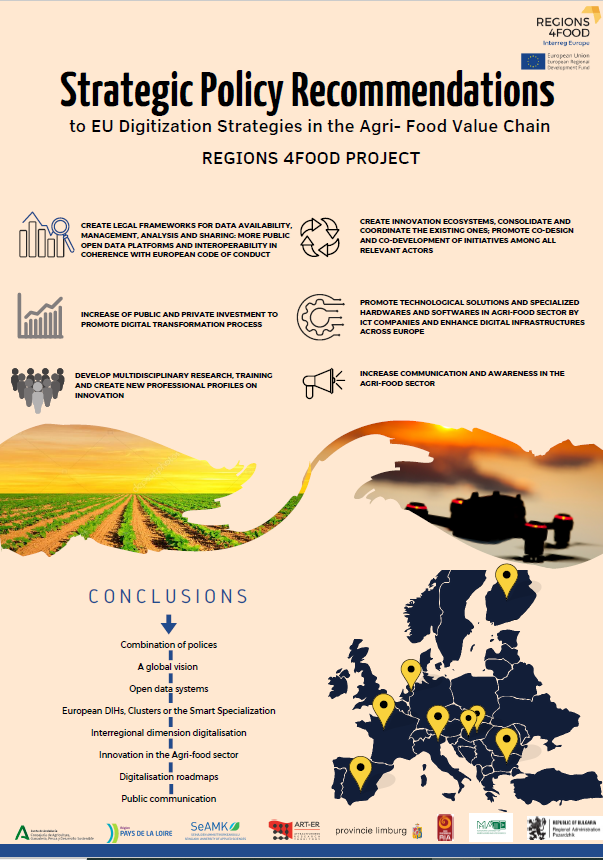Digital technology and the agricultural sector in general, might be seen as being incompatible. This is a divide that must be addressed in order to tackle one of Limburg’s biggest challenges, from the policymakers’ perspective.
Globally we need to produce more and a better quality of food. If met through current methods of farming we can expect this demand to cause significant damage to the environment.
As we rocket, according to the Food and Agriculture Organization (FAO), towards a global population of 9.1 billion by 2050, it is clear to all that technology has a role to play: but how and to what extent?
It is clear that technology has come a long way and is now offering real and practical solutions.
Cooperating in Europe: Regions4Food
Three years ago, the Province of Limburg and several Limburg stakeholders, together with six other European regions, started a collaboration in the European project Regions4Food. The aim is to explore the possibilities of accelerating the digitization of the agricultural sector in each of these seven regions, including Limburg. The need for a joint approach is clear. We are entering into a new era of agriculture, with the Internet of Things (IoT) and mobile connectivity having a significant part to play.
It is in this context some innovations saw the light in the Province of Limburg.
Vertical farming
A good example is Light4Food - Your Partner in Indoor Growing Systems. She builds vertical farms. This is the stacked growth of crops in adapted conditions where the climate is carefully controlled.
Vertical farming can yield 2 to 3 times more crops than conventional farming space. It requires significantly less water and uses no insecticides.
A large part of the technology used consists of sensors. These are used to monitor crops.
It is relevant as well to mention that sensors are becoming cheaper and cheaper, making them increasingly accessible to agricultural companies.
Smart farms
Over the past years you notice an increasing interest in the use of sensors in the Province of Limburg. The big data, also called Internet of Things (IoT) solutions enable farmers to build ‘smart farms’ and digitalise production processes.
An example of an organization that translates this 'big data' into valuable information via a dashboard is the data platform of Yookr BV. Among other things, she has developed a technology with which cucumber nurseries can predict the daily harvest. An application that offers many farmers and horticulturists opportunities to contribute with larger volumes and better quality food.
Digital Innovation Hub
Digitalisation can also help accessing information and addressing other problems that farmers contend with – issues around access to information, markets and financial services.
The possibilities to create a Digital Innovation Hub and Smart Agri Food Hub in the Province of Limburg is currently being explored.
European cooperation
Since Regions4Food is an European wide project, sharing knowledge and inspiration across the borders is relatively easy. The past three years farmers and stakeholders visited on location and online many good practices in different European regions.






